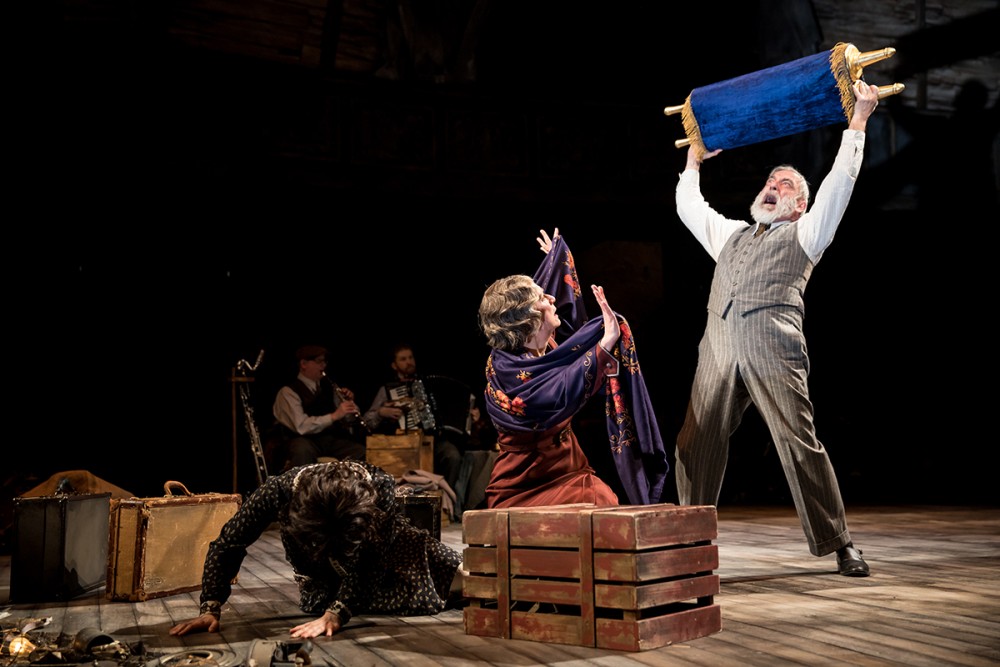The program for the Guthrie Theater’s “Indecent” is millennial pink. It features a take on the Star of David, with the downward pointing triangle transformed into a heart.
My copy is tear stained.
Like, very tear stained.
“Indecent” is a play about a play. In the early 1900s, polish writer Sholem Asch wrote the three act “God of Vengeance.” The play centered on a Jewish brothel owner and the love-affair between his daughter and a prostitute.
Asch was told to burn the manuscript. But he didn’t.
“God of Vengeance,” was translated into a multitude of languages and went on to tour Europe successfully before landing in Greenwich Village.
In 1921, the play featured the first same-sex kiss on the American stage. In 1923, It was shut down for obscenity during its Broadway debut.
Over a century after Asch’s penning, playwright Paula Vogel was asked to write a play about “God of Vengeance.”
Her work — the one that made me cry — follows the play’s run and the troupe that believed in it. It features the same elements as Asch’s work — queerness, distrust in faith and censorship. But no one told her to burn it.
“Indecent” premiered in 2015. Directed by Wendy C. Goldberg, the Guthrie’s take on the show opened Friday and runs through March 24.
With a cast of seven actors, “Indecent” immediately throws out a smattering of emotions.
There’s Yiddish song and dance, and the actors pour ashes out of their pockets.
As the play jumps forward in its timeline, the phrase, “A blink in time” appears on the stage. At first this is just a plot tool, but soon — as the ‘30s and ‘40s loom for the mostly Jewish characters — the bell that announces a flash forward becomes daunting.
The cast, playing multiple characters (some of which wear the same costume), are marvelous in both burlesque numbers and monologues. Stealing the show, however, is Ben Cherry as troupe stage manager Lemml. He’s enchanting in a way both sweet and desolate.
Touching on 20th century issues that are no less prevalent today, “Indecent” is eerie in its relatability. In Sholem Asch’s namesake character (played at different ages by multiple cast members) we see a young, passionate writer grow into a jaded author.
When another bright youth arrives, we hope the same doesn’t happen to him.
But even if it does, we’re happy the story is told. Because maybe some other young playwright will see this play and, because of it, the same won’t happen to them.
In an interview with the Guthrie, Paula Vogel answered a question about censorship. “What do we lose when we censor our artists?”
“I like to think of theater as a canary that you bring down to the coal mine to see if there are poisonous gases,” Vogel said. “Theater is our canary in the coal mine. If we censor it, we do not know that we are being poisoned. We must support the artists in our midst.”
“Indecent” had one of those standing ovations where no one waits around to see what the row in front of them will do. They just jump to their feet. Someone behind me said “wow” three times — twice softly and once not.
Wow indeed.
Grade: A








